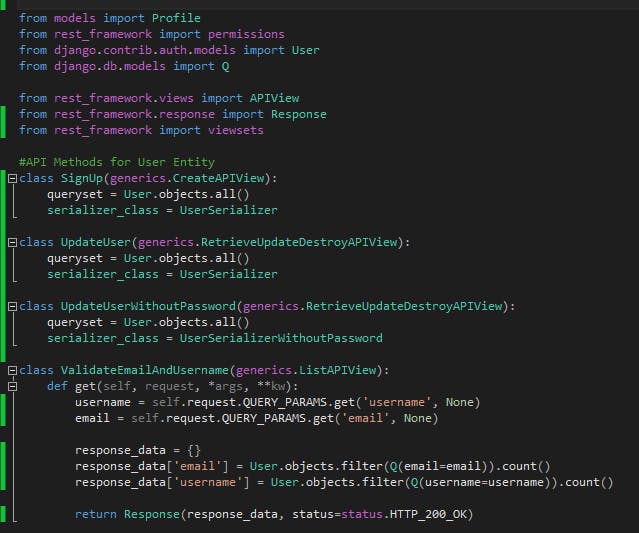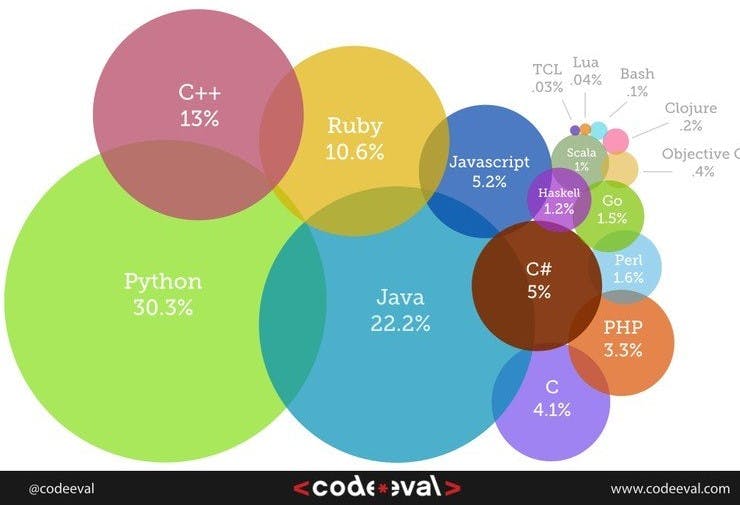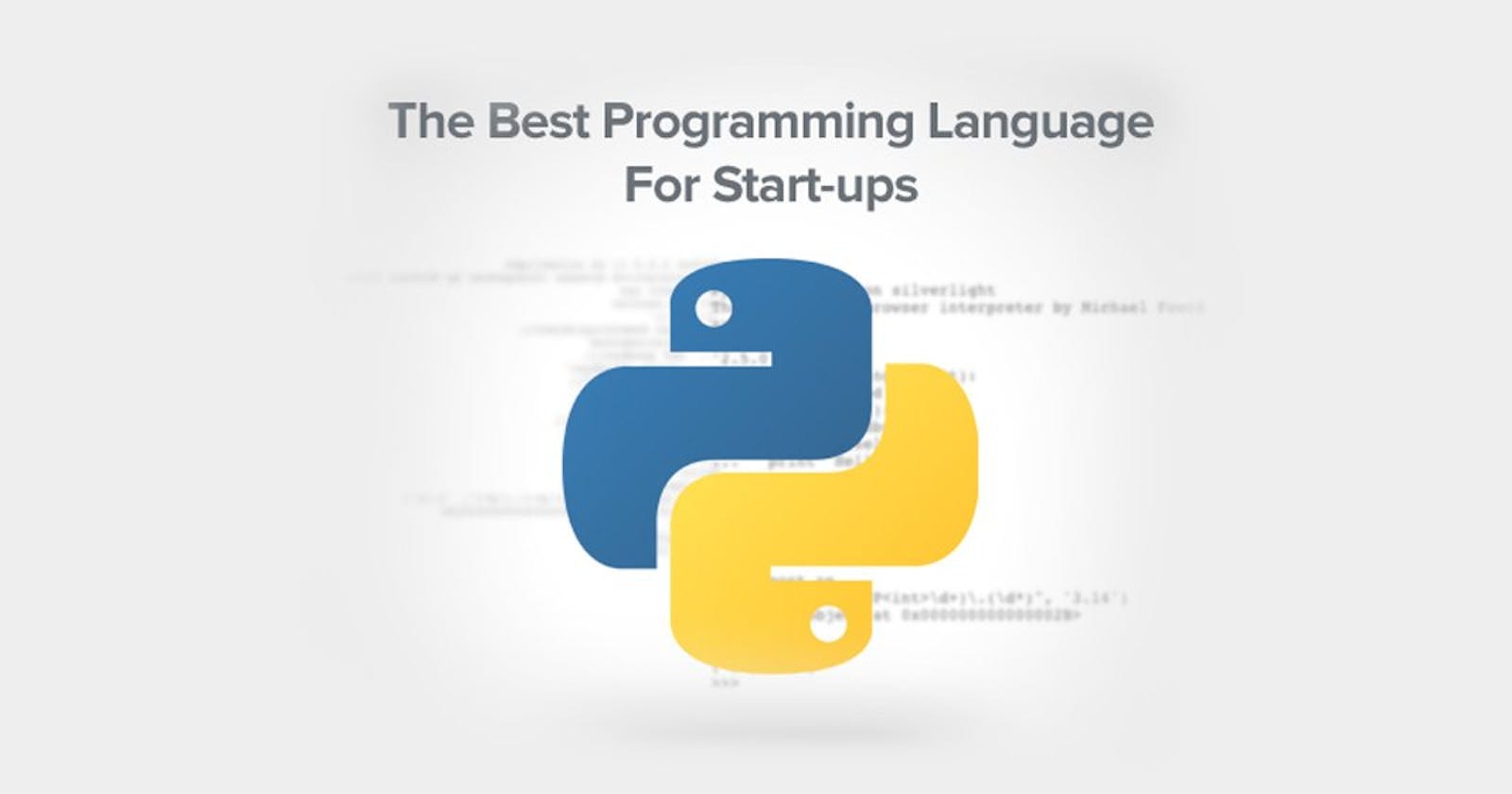It's pretty apparent that anybody who deals with technical projects can get easily confused or frustrated by the broad range of available programming language options. When you source an IT project, there is a good chance that you become intimidated by the number of static and dynamic coding languages to choose from. Though the requirements related to programming languages are specific to each project, there are certain comprehensive steps for narrowing down these options.
When you choose a programming language, you have to keep certain usage patterns or requirements in mind.
Find out what works for your team.
Figure out what will work in context.
Take into account the ease of learning.
Look at the tools available for each of the programming languages you are considering. Examine the cross-platform ability.
Evaluate the security and general access provided by each of the programming languages.
When you do most of your work on the web, the language you use should have frameworks and tools to help you. However, since all your work is not on the web, it is good to use the language for other things. This is convenient for you to manage all of it and improve maintainability.
If you are a busy developer and bill by the hour, it is better to program quickly and provide more value. So, you should have tools to help you prototype quickly and if you have to change direction, turn around quickly.
Why Do Developers Prefer Python?
Python is a programming language that offers such attributes, among others, as we just talked about.
It has dynamic semantics and is a high-level object-oriented programming language. You can use it to develop applications rapidly as it has built-in data structures of a high level, along with the dynamic binding and dynamic typing. It is also helpful in connecting existing components and can be used as a 'glue' or scripting language.

It brings down the cost of program maintenance because it has a syntax that is easy to learn and is focused on readability. The Python development process promotes code reuse and programs modularity as it supports packages and modules.
You can freely distribute Python's extensive standard library and interpreter, available in binary or source form, free of charge, for all the main platforms.
Python's edit-test-debug cycle is very fast as it doesn't have the compilation step. It is easy to debug Python programs because a bad input or bug doesn't cause a segmentation fault. The interpreter raises an exception when it finds an error. The interpreter creates a stack trace when the program doesn't get the exception.
It is likely to examine global and local variables through the source-level debugger. Besides, you can review the code a line at a time, set breakpoints, and evaluate arbitrary expressions, among other things.
To debug programs quickly, add a few print statements to the source. This approach is made effective by Python's quick edit-test-debug cycle.
The main reasons why Python is preferred are as follows:
Mature and stable frameworks for web development
The standard library supports different programming paradigms and has tools for various tasks.
Frameworks that promote fast growth.
Stable and Mature Frameworks for Web Development
Python has quite many mature and stable frameworks for web development purposes. Django is for a more extensive framework. Tornado is for frameworks based on event-loop and developed for scaling out concurrent requests. Bottle, Flask, and web.py are there for web frameworks that are smaller and without any frills. Generally, client libraries are available to provide almost everything required for the functioning of a good web app.
Python provides connectors of high quality for nearly every database system available, in addition to access to tools that offer long-running backend processes or caching, among other things.
Other main languages in the sphere of web development, such as .Net, Java, PHP, and Ruby, have their own frameworks for various use cases. However, they don't have the kind of event-loop frameworks that Python has. Javascript has only one event-loop framework, i.e. Node.js.
Standard Library Supports Different Programming Paradigms and Has Tools for Various Tasks
The standard library includes several tools for performing various tasks and supports plenty of programming paradigms (functional, procedural, and object-oriented programming). There are libraries of very high quality for scientific calculations as well as for processing the images. GUI apps can also be written in Python as the language has mature bindings for Qt and GTK. It has been used for client-side apps, shell scripts, and mail routers.
Javascript and PHP are not that powerful in this field. PHP development is not suited for long-running methods and is likewise driven towards the web. Javascript lives mainly on the server and in the browser. It doesn't have the bindings and tools for external libraries that Python has.
Frameworks that Support Fast Development
Python frameworks enable fast development for the web. For example, Django provides:
In-built group and user acceptance.
Site admin.
Forms are pretty common for many websites.
However, many of these are modular. The framework offers using modular sections of your app for different projects, promoting reusable apps. For instance, if you integrate a social network with one site, you can also apply that code for other projects.
So, you are not required to create new code each time you build an app.
Additionally, most of the Python frameworks have a development server. All required is changing a code line that switches among multiple database backends if you apply the Django ORM. Actual databases such as Postgres can also be used to deploy your app and use SQLite that works on your local machine. Unless complicated queries are used, which is not needed in most projects, there is a negligible difference. Therefore, you can run your code locally and work on it almost anywhere without affecting your base system to set up or install databases and servers.
Startups are Choosing Python
As you would know, selecting the platform or language for use at a startup is among the most significant decisions.
Many startups choose Python these days. Apparently, PHP is not as good a language as Python, although PHP is somewhat easier to get started with. PHP is not very standardized, but there are quite some ways for executing the same thing.
For startups, the possibility for new-feature implementation and speed to market is quite essential. In comparison to Java, Python has to offer better code conciseness and faster development. Despite being small ventures and startups, quite numerous modern sites were based on Python. Such websites are usually horizontally scalable, i.e., you can add web servers and increase traffic volumes.
According to research conducted by the Altabel Group, Startups willing to launch a minimum viable product and receive venture capital favor Python more than Ruby. However, the philosophies associated with either language's frameworks hold more value than the language's merits. It's tough beating Ruby on Rails as a framework for rapid application development. Django supposedly does the same, but the community around Python is minimalistic. Generally, Python developers use tools such as libraries, persistency layers, and ORMs on their own.
Many begin Python-based Django development but switch to something similar to Flask, which is more minimalistic in nature. At the same time, Ruby on Rails developers 'hit the ground running, especially in startup cultures.
The prominent factor for Python standing out over Ruby has limited to do with the language features. Python is favored more by computer scientists, scientific and academic applications,
While Ruby has product solutions that are 'out of the box and smooth, Python has more elements, like Tornado, which are well-written.
Python is believed to be the more reliable bet since it is used at Google, with great potential for items like LiveNode becoming open source releases.
Why Python is Ideal for Startups
The first step to get your tech startup up and running, after you have a great business idea, is to decide which programming language to use to write your IT products. Although you can write your product in any language and do it rather well, situations like those where startups have limited time and budgets can make a difference. Python can prove quite economical in terms of both time and money.

Python is useful for startups in the following ways:
The specified requirements for startups that Python fulfills.
It helps tackle complexity.
You can create working prototypes easily.
A small team can write code almost effortlessly.
It allows startups to get investments quickly.
Startups can start earning faster using Python.
Good customer support is available.
Startups typically don't have much money to spare at the beginning. They are more likely to start with budgets around $15,000-$20,000.
The IT world may not see that kind of a realistic budget, except operating with programming languages like Python. Neither do they have much time to convince investors and partners about the project's potential. Finally, they have to build the product as soon as possible to make their first money and survive.
Python Helps Tackle Complexity
Social networks, media streaming projects, and other such startups are typically based on the web and big data drives the web. Python is ideal for web solutions and helps tackle complexity. Using this language, you can overcome issues such as integrating different systems, which would otherwise take a lot more effort. The language also performs well concerning scalability. Startups need to gain initial success and grow their businesses to do well for many years to follow.
You can Create Working Prototypes Easily
It can provide ready solutions for large projects. If necessary, you can rewrite something written in Python in another language. This can give startups more time to attain success. The faster the startup reaches a breakeven point the better.
Python is very useful for writing prototypes. While other languages can take too long to get there, Python doesn't need much time and already has a working prototype. Prototypes can help save startups a lot of time and money as they can see through these whether the business idea is likely to work or not.
A Small Team can Write the Code Almost Effortlessly.
Python lets programmers write the proof of concept almost effortlessly. You don't have to assemble a large team of developers and designers to create a good-quality product. So, startups get a chance to try out various ideas and see how these work. A working prototype can provide the boost of confidence necessary to move forward.
Helps Startups Get Investments Easily
Once you have a system that works, you only have to fix bugs and obtain investments rapidly. Startups have to show the investors what the product is all about to induce them to provide funds. The project won't progress despite promotion and the niche you find in the market unless investors agree to provide you the money you require to move forward. Most of the time, proof of concept is used only to persuade investors and not any further business.
Startups can Start Earning faster using Python.
Your startup project may flop unless you get to the market and begin earning money quickly. If you build and support your project in Python, the returns will be faster as it will let you work fast. Also, because of low initial spending, you'll have a more significant profit.
Good Custom Support is Available
This allows your product to be of high quality and be stable and less prone to crashes or flaws. Python provides you with prompt support, besides quick resolution of technical issues.
Conclusion
Startups have to move fast and try to succeed as quickly as they can as competition is fierce. Python helps them have a working product within a month or two and at a meager cost, with the help of a small development team. That makes it one of the best programming languages for startups.

